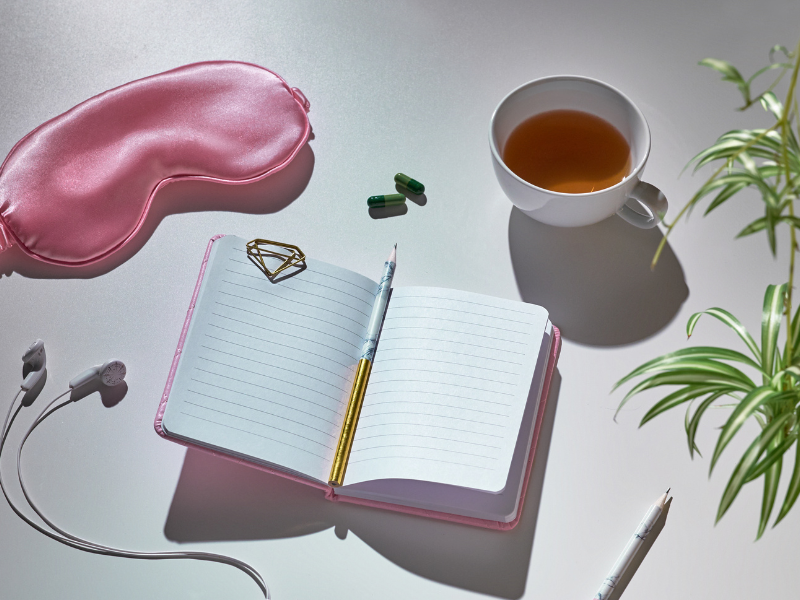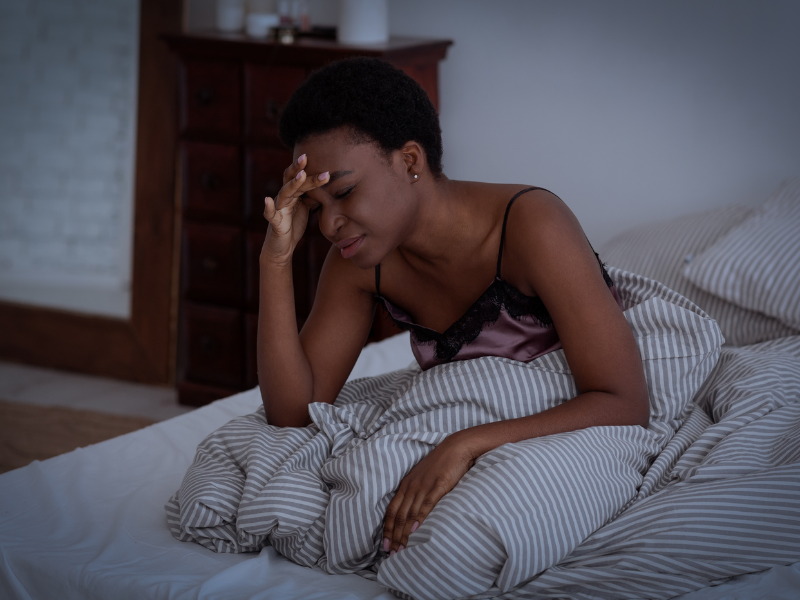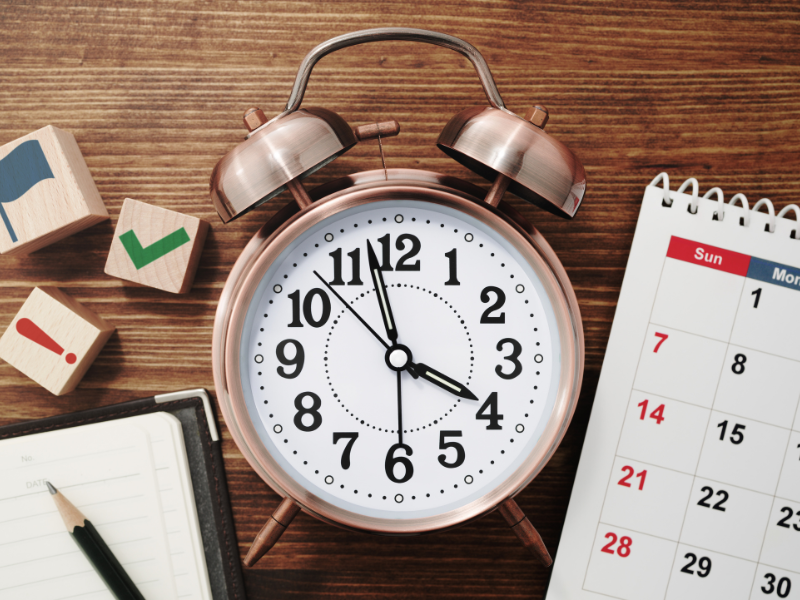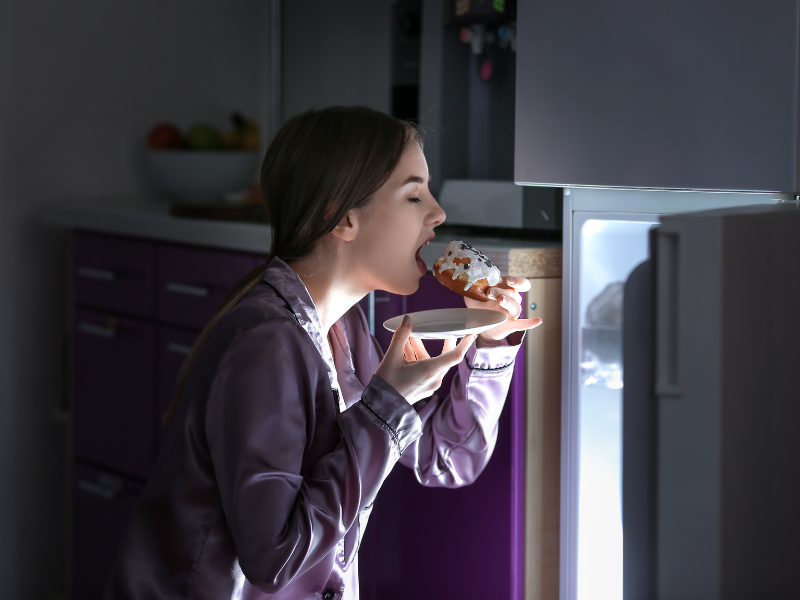


Do you recall the last time that you had slept well? Was it a long time ago? If you constantly struggle with poor sleep, it might have to do with your sleep hygiene. Poor sleep hygiene or poor sleep habits can cause sleepiness throughout the day and trouble falling asleep.
By making a conscious effort to break poor habits, you can significantly enhance your sleep hygiene, leading to better, more restful sleep.

Sleep hygiene is a term used to describe healthy habits and practices to achieve a good night’s sleep.
Sleep is undoubtedly one of the most essential components of good physical and mental well-being. If we don’t get enough quality sleep, our brains will not be able to function well and it puts us at risk of chronic diseases.
There are quite a few key benefits of practicing good sleep hygiene which include [1]:

Poor sleep hygiene can manifest itself in different ways. You may experience trouble falling asleep, causing you to feel sleepy during the day.
It could also be that you do fall asleep, however, you are constantly waking up in the middle of the night.
Sleep problems such as insomnia are often a result of bad sleep habits. Fortunately, it is possible to achieve better sleep hygiene by making lifestyle changes and breaking these habits.

It may be tempting to stay up late, especially on weekends, to binge-watch shows on Netflix or play video games. However, doing so can mess with your body clock.
Our body’s sleep-wake cycle is regulated by an ‘internal clock’ within the brain, known as the circadian rhythm. We want to train our brains to recognize when it is time to sleep and wake up, which is done by having a fixed schedule.
Additionally, having a fixed sleep schedule also helps our body to get used to the timing, fall asleep faster, and wake up refreshed each morning.

Our sleep environment also plays an important role in achieving a good night’s sleep. A brightly lit room can affect sleep as it decreases the production of the sleep hormone, melatonin. Warm temperatures and a noisy environment can also cause sleep disruptions.
It is important to make sure that the room is kept at a cool temperature between 60-72°F (15-22°C), dark and quiet. You may consider using blackout curtains or a sleep mask to block out light.
If you live in an environment that is filled with loud external noise, you can use earplugs or invest in a white noise machine or app such as ShutEye® with sleep sounds to drown out the noise.

Unless you are feeling sleepy, try to avoid staying in bed in hopes that you will drift off to sleep naturally. This can contribute to feelings of restlessness, affecting your sleep quality.
Before going to bed, spend at least an hour or so doing relaxing activities that will help you wind down. For instance, taking a warm bath, reading a book, doing light stretching, or engaging in meditation exercises.
Anxiety and stress makes it hard for us to fall asleep. Relaxing and clearing our minds helps to make this process easier. You also want to limit screen time and reduce exposure to blue light as it can disrupt sleep.

Avoid eating heavy meals or snacking just before you are about to sleep. Our bodies need at least 2 to 3 hours to digest food properly. When you sleep immediately after eating, there is not enough time for digestion to take place.
This may result in having your sleep disrupted and waking up at night due to digestive problems. At the same time, going to bed hungry can also affect your sleep. If you are feeling hungry and must eat, opt for light snacks such as yogurt or plain crackers.

You also want to limit consumption of caffeine and energy drinks in the afternoon and evening. These are stimulants that can reduce the effects of fatigue, making you more energetic.
Alcohol should also be avoided before going to bed. Although alcohol has a sedative-hypnotic effect that can increase drowsiness, it affects sleep patterns, particularly REM sleep [2].

Seeking professional help from a sleep expert is also beneficial if you are struggling with a sleep disorder. A sleep specialist can diagnose and provide a personalized treatment plan to help you overcome sleep challenges and improve your overall well-being.
All in all, you can achieve healthy sleep by practicing healthy sleep habits. This is done by making adjustments to your lifestyle such as having a consistent sleep schedule, a bedtime routine, a comfortable sleep environment, and avoiding late-night meals, caffeine, and alcohol.
For more tips to improve your sleep quality, discover the ShutEye® app. ShutEye® is a patented sleep-tracking app that can help you sleep better through personalized sleep insights and recommendations.
Cleveland Clinic (2023) Sleep Hygiene: 7 Tips for a Better Bedtime Routine [online]. Available at: https://health.clevelandclinic.org/sleep-hygiene
University Hospital Southampton (2022) Sleep hygiene [online]. Available at: https://www.uhs.nhs.uk/Media/UHS-website-2019/Patientinformation/Other/Sleep-hygiene-3276-PIL.pdf